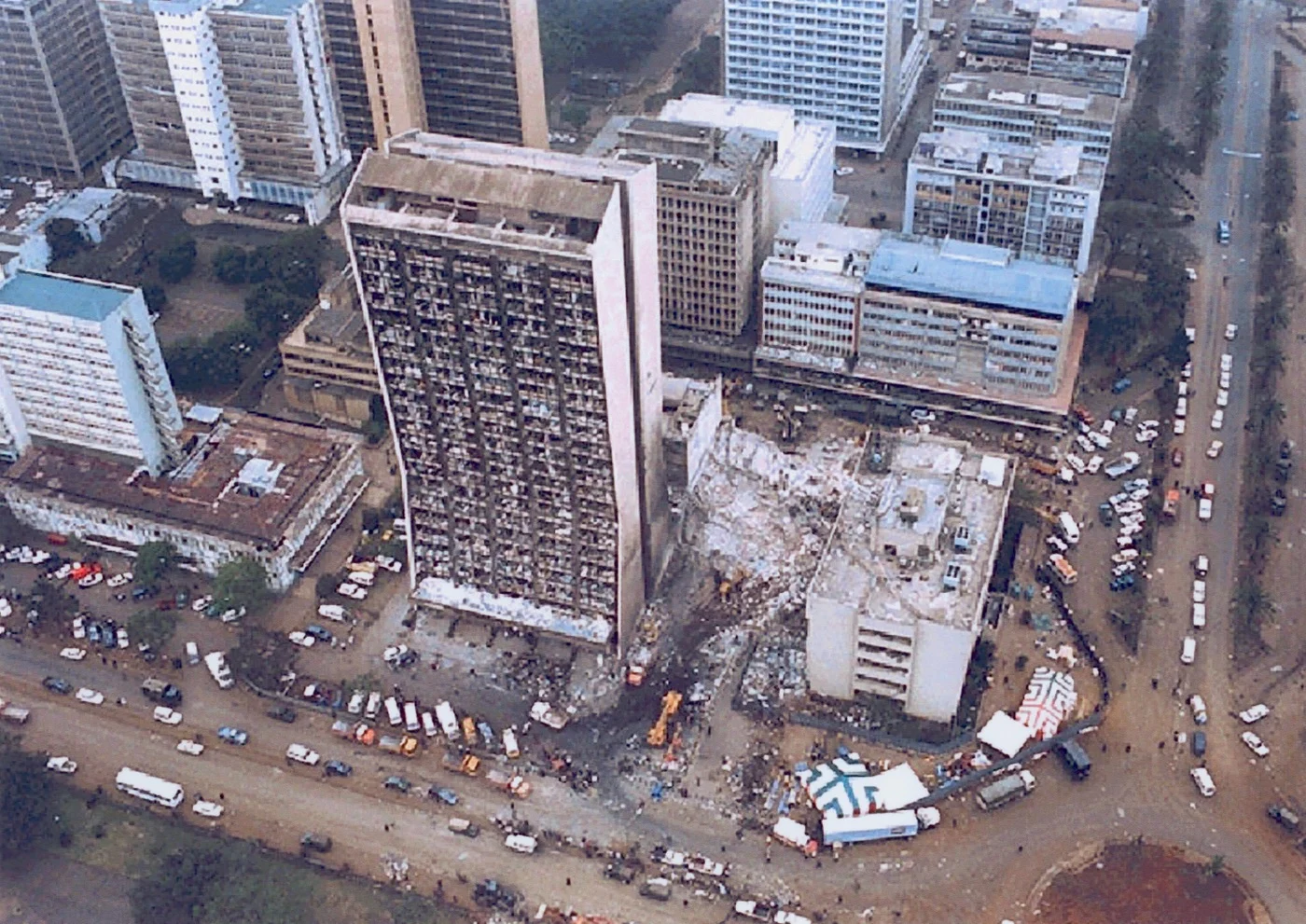
South Africa has strongly denounced the assault that occurred on Monday targeting the consular section building of the Embassy of the Islamic Republic of Iran in the Syrian Arab Republic.
Clayson Monyela, the spokesperson for International Relations and Cooperation, expressed South Africa’s condemnation, emphasizing that any attack on a diplomatic or consular establishment constitutes a blatant breach of international law, which guarantees protection to diplomatic and consular representatives within host countries.
Monyela stressed the fundamental principle of safeguarding diplomatic and consular premises and personnel as a cornerstone of International Law, crucial for fostering orderly relations between nations. He underscored that an assault of this nature should draw concern from the global community, noting that such actions also infringe upon Syria’s sovereignty, independence, and territorial integrity, principles that demand respect and preservation.
In the wake of the attack, the South African government extended its heartfelt condolences to the victims’ families, as well as to the government and people of the Islamic Republic of Iran. Reports indicate that the attack resulted in the loss of 13 lives.
South Africa has issued a call to the United Nations, including the United Nations Security Council, urging them to hold those responsible accountable in accordance with the principles outlined in the United Nations Charter, as well as in key conventions such as the 1961 Convention on Diplomatic Relations, the 1963 Convention on Consular Relations, and the Convention on the Prevention and Punishment of Crimes Against Internationally Protected Persons of 1973.
Additionally, the nation has appealed to all parties involved to exercise restraint and refrain from actions that might further escalate regional tensions.
The South African government has vehemently denounced the recent attack on the consular section of the Embassy of the Islamic Republic of Iran in the Syrian Arab Republic. Clayson Monyela, spokesperson for International Relations and Cooperation, delivered a statement expressing the government’s stance on Wednesday. Monyela emphasized that any assault on diplomatic or consular establishments is a direct violation of international law, which provides vital protection to diplomatic and consular representatives operating within host states.
According to Monyela, the protection of diplomatic and consular premises and staff is a fundamental principle of International Law, essential for maintaining orderly relations between states. He stressed the gravity of such attacks, stating that they should be a matter of concern for the entire international community. Furthermore, Monyela pointed out that attacks of this nature not only disregard international law but also infringe upon the sovereignty, independence, and territorial integrity of the host nation, Syria.
In response to the attack, South Africa extended its condolences to the families of the victims, as well as to the government and people of the Islamic Republic of Iran. Reports indicate that the attack resulted in the tragic loss of 13 lives.
South Africa has called upon the United Nations, including the United Nations Security Council, to take action and hold those responsible for the attack accountable, in line with the principles outlined in the United Nations Charter. Additionally, South Africa emphasized the importance of adhering to key conventions such as the 1961 Convention on Diplomatic Relations, the 1963 Convention on Consular Relations, and the Convention on the Prevention and Punishment of Crimes Against Internationally Protected Persons of 1973.
Furthermore, South Africa urged all parties involved to exercise restraint and refrain from actions that could escalate tensions in the region.
The South African government’s condemnation of the attack on the consular section building of the Embassy of the Islamic Republic of Iran in the Syrian Arab Republic was unequivocal. International Relations and Cooperation spokesperson Clayson Monyela delivered a statement on Wednesday expressing the government’s firm stance on the matter. Monyela emphasized that any assault on diplomatic or consular establishments represents a clear violation of international law, which grants essential protection to diplomatic and consular representatives operating within host states.
According to Monyela, the principle of safeguarding diplomatic and consular premises and staff is a cornerstone of International Law, crucial for fostering orderly relations between states. He underscored the seriousness of such attacks, stating that they should raise concern for the entire international community. Additionally, Monyela highlighted that attacks of this nature not only disregard international law but also infringe upon the sovereignty, independence, and territorial integrity of the host nation, Syria.
In response to the attack, South Africa extended its condolences to the families of the victims, as well as to the government and people of the Islamic Republic of Iran. Reports suggest that the attack resulted in the tragic loss of 13 lives.
South Africa has called upon the United Nations, including the United Nations Security Council, to take decisive action and hold those responsible for the attack accountable, in accordance with the principles outlined in the United Nations Charter. Furthermore, South Africa emphasized the importance of adhering to key conventions such as the 1961 Convention on Diplomatic Relations, the 1963 Convention on Consular Relations, and the Convention on the Prevention and Punishment of Crimes Against Internationally Protected Persons of 1973.
Additionally, South Africa urged all parties involved to exercise restraint and avoid actions that could further escalate tensions in the region.
This website uses cookies.